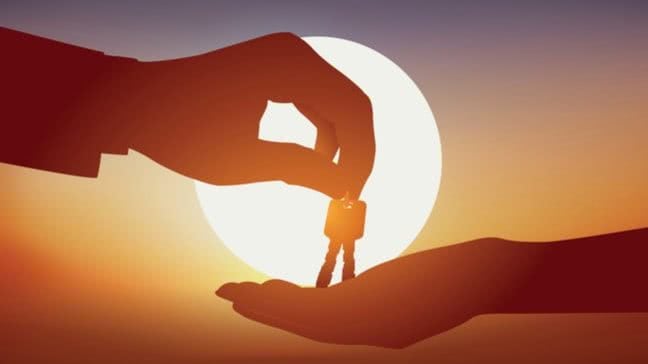One scroll through Instagram of Facebook can fill even the most confident millenial with anxiety that they’re not ‘doing it right’ in life.
Friends having kids, moving out of home, getting married and even buying houses in the capitals can make the best of us doubt our work, study and lifestyle choices, and make us second guess our future plans.
Heck, even the Catholic Church is ticking all the property boxes.
If this is you, never fear – a majority of Australians aren’t hitting the big milestones until they’re significantly older than they might have been in the past.
New data collected by the Roy Morgan company shows that people are living at home longer, renting until later in life and buying property way further down the line than the influencers of social media would have you think.
Here are 3 key findings from the data that might just help you to calm down and not stress about putting down that deposit before your 25.
1) People are living with their parents for longer
“They probably still live in their Mum’s basement” doesn’t have the same burn-factor due to the fact that…there’s a good chance that you do to!
54.9% of 21-22 years olds now live at home with their parents, with a 10% increase since 2008. There’s nothing wrong with this and casts light over the cost of renting in 2019.
2) People are renting for far longer
The peak age group for renters in Australia is 25-29-year-olds, but there has been a huge spike in numbers (63.9%) since 2001.
In addition, over 50% of those aged 30-34, and over 33% of over-40-year-olds are renting in Australia in 2019.
Read: A recession is coming – and it might be good news
3) There are fewer homeowners today
The data revealed that the longer people rent, the longer it takes them to put down a deposit and given people are renting for longer…you do the math.
When we cast back, in 2008 53.6% of 55-59 owned their own homes. That figure now sits at 38.8%. That’s a fall of 15% for people closest to retirement within the workforce.

What does this mean?
“The increase in the proportion of Australians renting and sharing houses has directly impacted homeownership,” said Michele Levine, head of Roy Morgan.
“The changing way Australians decide upon their living arrangements and living their lives are clearly having a huge impact on the choices Australians make… and where they decide to spend their dollars for leisure, entertainment as well as for necessities.”
Essentially, if you find yourself unable to afford a deposit by the time your 30, you’re not alone. The way property works is shifting, and although we’re conditioned to feel like we need to lock things down quickly, perhaps we can take a leaf out of the European’s book when we approach property and adulting.

































